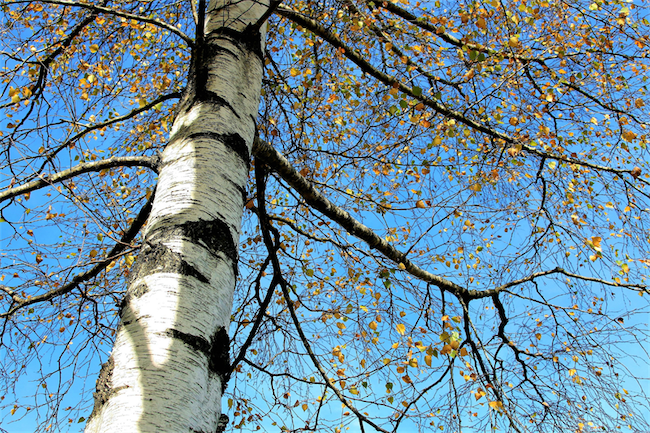
A birch tree (City of Salem)
As Salem sees hotter and drier weather, the city’s top tree expert says local birch trees are increasingly vulnerable to infestation.
More birch trees in Salem are becoming infested with bronze birch borer, a native wood-boring beetle that can reproduce in non-native birch trees, as well as Oregon species that are under stress.
The beetle “cannot kill healthy trees and is most likely to attack old, stressed, or drought-stricken trees,” says Milan Davis, Salem’s urban forester, in a statement. “While many homeowners may not place a high priority on watering mature trees, this can be a key strategy for preventing BBB damage in dry areas. Birch trees tend to be shallow-rooted and respond well to watering.”
Symptoms of infestation can look like a tree affected by drought.
“Wilted leaves near the top of the tree are often the first identifiable sign of the borer’s presence, followed by twig and branch dieback,” according to an Oregon State University extension service guide to the pest.
D-shaped holes in a tree’s bark where the beetle has exited the tree are another sign of infestation.
A city bulletin said taking good care of trees is the best way to protect them. Buying locally-sourced firewood can also help stop the pest’s spread.
Davis said removing trees too harmed by the beetle to recover can help stop the pest from spreading. Trees that have lost more than half their leaves to infestation generally need to be removed.
If you suspect a city-owned tree is infested with birch borer, call 503-588-6311 or email [email protected].
-Rachel Alexander









